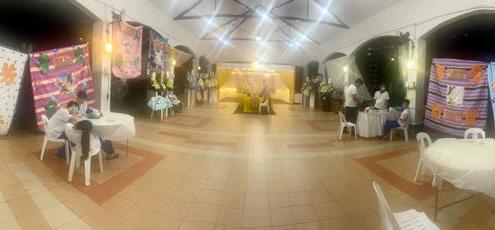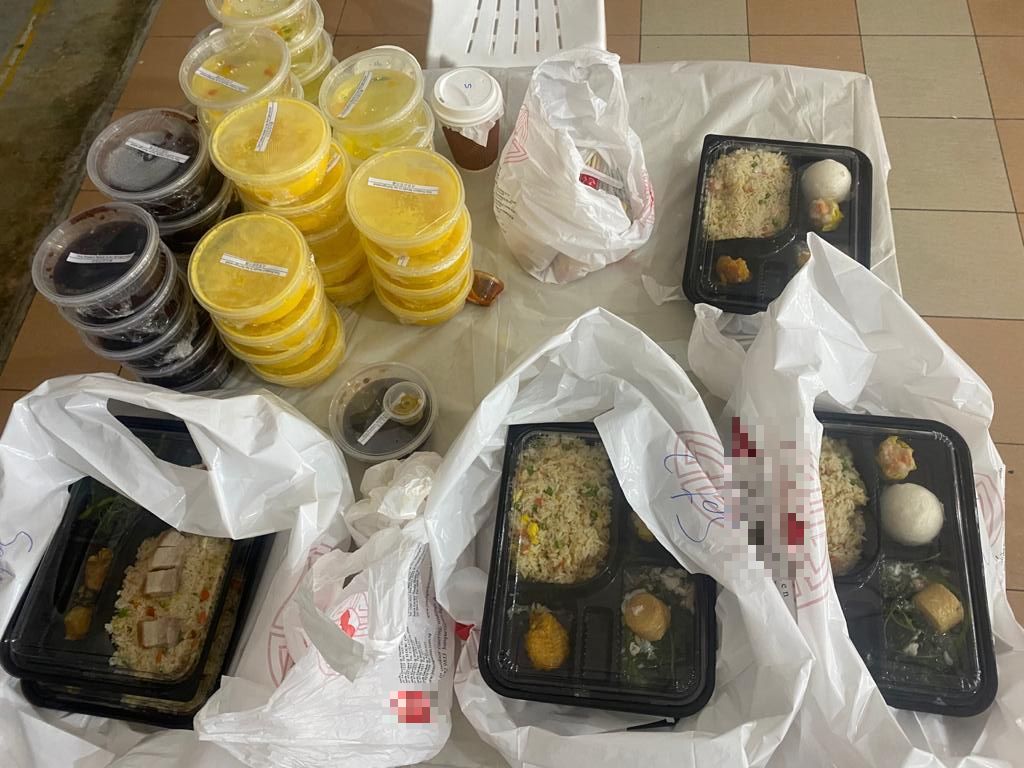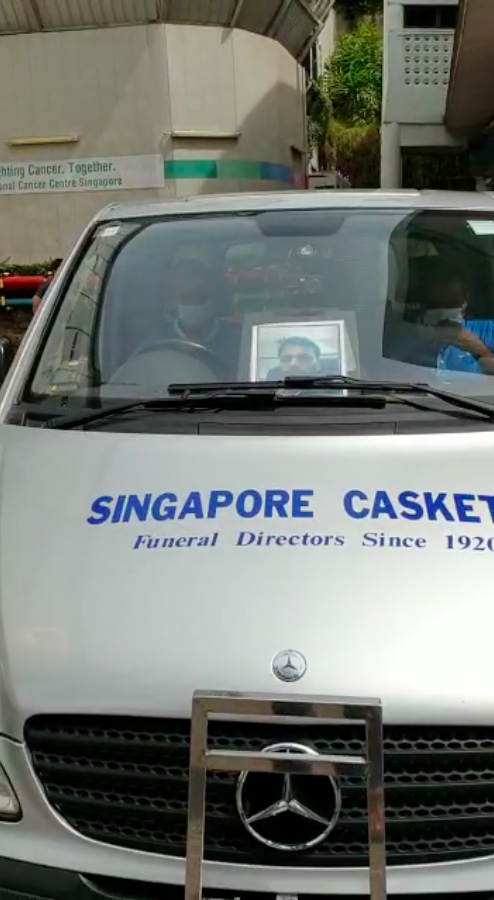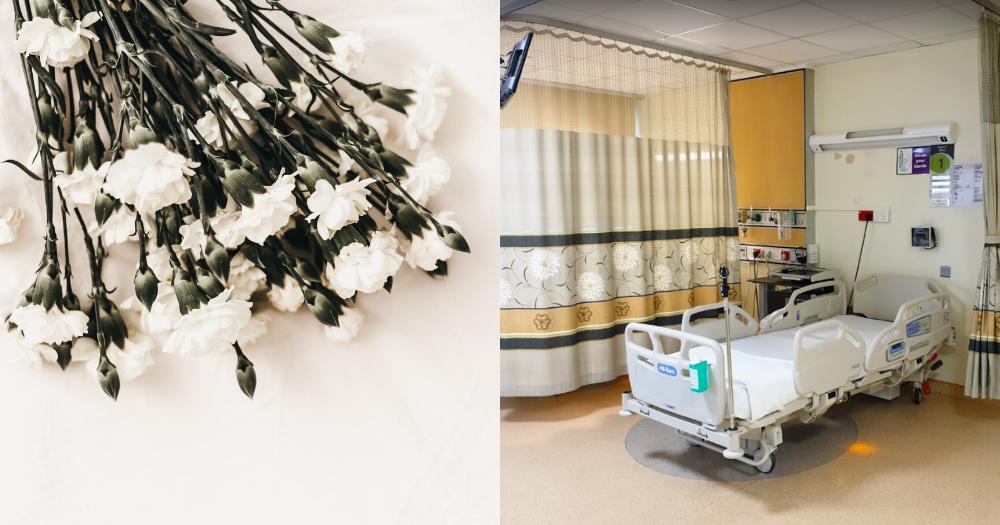The days following the death of a loved one are, no doubt, extremely difficult for their families.
And this is only exacerbated for the loved ones of deceased Covid-19-positive individuals, who have to deal with not only the emotional grief of losing someone dear to them, but also manage the post-death arrangements, which are significantly more onerous for Covid-19 patients due to the current limited knowledge of their posthumous infectiousness.
So far, 23 people have passed away in Singapore after suffering complications arising from Covid-19 infection. Another nine who died here also tested positive for Covid-19, but their causes of death were certified to be various others.
We spoke with two individuals who managed the post-death proceedings of two people who had Covid-19.
One is Wendy (not her real name), the granddaughter of an elderly Singaporean woman who passed away from Covid-19.
Wendy has requested that we keep her grandmother's details vague for privacy reasons.
The other is Kannan Kaliyaperumal, who managed the logistics of the death of Ramachandran Chandhiramohan, a 31-year-old Indian construction worker who passed away on May 10 and whose family is back in India.
The cause of Ramachandran’s death was deemed to be coronary thrombosis (the formation of a blood clot inside a blood vessel of the heart); he tested positive for Covid-19 after his passing.
Grandmother passed away quickly after testing positive for Covid-19
In April, Wendy's grandmother was conveyed to the hospital after she started experiencing breathlessness.
At the hospital, she was diagnosed with Covid-19. Soon, she had to be put on oxygen supply and an IV drip.
Her condition subsequently worsened, and the hospital arranged a Zoom call for Wendy’s family to speak to the matriarch.
Because she was receiving the maximum amount of oxygen she could get, Wendy's grandmother was unable to speak during the video call, and had visibly lost a lot of weight since Chinese New Year, when Wendy last saw her.
The following morning, she passed away.
"My father, myself, my brothers — we did not think she would go so soon. We thought that she could pull through. It was quite unexpected, lah."
Death of Ramachandran Chandhiramohan
Unlike Wendy’s grandmother, Ramachandran was not a Covid-19 patient when he passed away, and unlike Wendy, Kannan is not a family member or even a close friend of Ramachandran's.
In fact, Kannan only found out about Ramachandran’s death three days after the fact, on May 13, when he received a call from his family back home in Tamil Nadu, India, the state both men hail from.
It turned out that Ramachandran and Kannan were from neighbouring villages, and Ramachandran’s family had reached out to Kannan’s uncle, who is quite familiar with the people of the neighbouring village, for help with the post-death arrangements.
The family hoped for Ramachandran’s body to be returned to them so that they could carry out funeral rituals according to Hindu tradition, but Singapore's Ministry of Health (MOH) said that it would not be allowed because Ramachandran was infected with Covid-19.
(It is worth noting that the National Environment Agency (NEA) regulations do actually allow for transportation of the body of a deceased individual found to have Covid-19 back to their home country, but it is not advised, and approval must be given by both the home country and NEA’s port health office.
Responding to Mothership's queries about why this was not an option offered to Kannan, an MOH spokesperson gave the following statement:
"Due to potential risks of infection arising from physical contact with contaminated tissues and bodily fluids, embalming is prohibited for deceased cases who were tested positive for COVID-19.
For such cases, families/next-of-kin are advised to cremate the bodies, and transport the cremated ashes back to their home countries."
According to NEA's website, under normal, non-Covid-19 circumstances, embalming may be necessary in certain situations, such as funerals with viewing or an open casket, and is "typically done" when a body is to be transported over long distances or across borders.)
Ramachandran’s employer tried to explain this to the family, but faced issues convincing them that what they wanted wasn’t possible.
And this is where Kannan came in. His uncle reached out to him after Ramachandran’s family approached him to ask if there was anyone in Singapore who could help.
"He knows I’m the kind of help people person. In my village, when somebody need, I used to do," explained Kannan, a Singapore Permanent Resident.
"So, when I heard this, I think, we need to do something for this because it's the last... this is the only thing that she needed in the last.
Their family also is crying there, and when I spoke to his mother also, I was totally down because she was screaming, 'I can't even see my son's face at last once. It's really, [make] me emotional.
So this is the reason. Mainly, I just wanted to do something for them."
Navigating the logistical post-death arrangements
Both Wendy and Kannan had to deal with navigating the numerous post-death procedures needed.
For Wendy and her family, they were informed of her grandmother's passing by her uncle. However, because he had been living with her when she was diagnosed with Covid-19, he was under quarantine, and so Wendy’s father was tasked with handling all the logistical arrangements for the cremation and wake.
Wendy, who assisted her family with handling the logistical arrangements for her grandmother's cremation and wake, faced challenges right off the bat when she went down to the hospital to collect her grandmother's body.
Prior to heading down to the hospital, she said she was told over the phone that one member of her family would be able to view her grandmother for the last time and identify her, before her body was moved to the morgue.
Wendy also said she was told that her grandmother’s death had been registered already.
However, when they got to the hospital, they found that their instructions were different from what they had been told over the phone — they would not be able to view Wendy’s grandmother’s body in the ward, and they still needed to register her death.
This was frustrating for her, she said:
"Doing the right thing is one thing. But the other thing is that you tell us these instructions that we do, and you make us go round and round."
She and her family also felt stuck and rushed when it came to choosing a funeral and cremation service for her grandmother. They had wanted to follow those of her grandfather’s, who had passed away, coincidentally, also during a pandemic — during the SARS era.
However, the list of possible funeral service companies qualified to handle bodies with Covid-19 that was provided by the hospital did not include the one that they had used for him, and they also struggled to find a service that could carry out Hakka Taoist funeral rites.
In the end, they decided on a Buddhist funeral instead.
The whole situation left Wendy’s family feeling quite confused:
"We don’t even know if we want to cremate the body today, immediately. We don’t know which site. We haven’t found a funeral service. Then what are we supposed to do?"
For Kannan, he had to coordinate with Ramachandran's employer, MOH, NEA, and the High Commission of India in Singapore in order to claim the body.
He went to the High Commission on May 15, in order for Ramachandran's family to give their confirmation, over a call, that he was authorised by the family to coordinate Ramachandran's post-death activities in Singapore.
The High Commission and Kannan reached out to NEA for approval for the cremation, which they received the following day, Saturday, May 16.
However, the funeral service's schedule over the weekend was quite tight, so the cremation was scheduled instead for Monday, May 18.
Throughout this process, Kannan told us he provided Ramachandran's family with updates in order to try to allay their worries, and helped to be an intermediary between the process in Singapore and their requests.
Holding the wake and cremations
The post-death arrangements for both Wendy's grandmother and Ramachandran were very different from what they usually would be.
This was due to NEA guidelines for deaths of people with Covid-19, as well as the closure of borders due to Covid-19.
NEA has stated that attendance at funeral wakes, cremations, and burial services are permitted during the circuit breaker period, but:
- Attendance should be kept to 10 people or less, and "limited to family members as far as possible".
- Whereas wakes typically last five days, wakes for Covid-19 deaths should be kept to three days only.
- There must also be no physical contact with the body; the bodies are double bagged by healthcare workers in the hospital before being placed in a hermetically sealed coffin.
- Cremation is strongly recommended, although burial is permitted if there is "strong religious reason".
- Attendees must keep at least 1 metre from each other.
And for foreigners who pass away and have Covid-19, their loved ones are "strongly advised" by NEA to have the body cremated in Singapore prior to transporting the ashes back to their home countries, rather than having the body repatriated as would be normally likely.
Wendy's family held a three-day closed-coffin wake for her grandmother, and no one was allowed to get close to the coffin.
Wendy explained how, while normally the wake would involve getting close to the coffin for prayers, she had to stand there and make sure no one went near the coffin:
"Even [during] all the prayers, all the chants, and all. No one will go around.
Because usually you'll walk around the coffin, mah. But this time we don't have those kind of things."
They also enforced contact tracing by collecting the temperature, contact number, and names of everyone entering and leaving the wake, including delivery people and relatives.
The couple of tables they had were spread out far from one another, and food was served in individual bento boxes rather than the typical buffet style.
 Practising social distancing at the wake. Photo courtesy of Wendy.
Practising social distancing at the wake. Photo courtesy of Wendy.
 Bento boxes rather than buffet. Photo courtesy of Wendy.
Bento boxes rather than buffet. Photo courtesy of Wendy.
And for evening prayers, they limited the number of people who could participate, with one metre of space between each person.
They also limited the number of people who attended the cremation to 10, which meant that even Wendy herself was unable to attend, and instead kept watch over the void deck where the wake was set up.
Ramachandran's cremation was held on May 18.
 Ramachandran's body collection on day of cremation. Photo courtesy of Kannan.
Ramachandran's body collection on day of cremation. Photo courtesy of Kannan.
In the days leading up to it, Kannan kept in close communication with the family to update them on what was happening, so they could plan for their prayers for the cremation day itself, as well as after:
"Because, in our customs — I believe the Chinese also share something — how many days we need to do some prayer...
They need to do a week, and 16 days. So they have these kind of prayers."
Normally, these prayers would be done in person, but, of course, it was not possible in this case.
Another integral ritual the family was unable to perform as per normal was the scattering of ashes into the sea or a body of water that flows into the sea.
"Because these in our custom. Usually in our country, we usually do it in the lake, or river, or sea," Kannan explained.
The belief is that scattering the cremated ashes of a deceased person into the sea or water that flows to the sea will transport them to the next life.
It was difficult for the family to know they would not be able to carry out the customs themselves:
"They supposed to do all these by their hand, you see. But ended up it's not able. And because, as myself also, my means also is quite limited."
Instead, for Ramachandran, the funeral service company carried out the scattering of ashes into the sea, and took a video of it which they shared with Kannan.
Kannan in turn shared the video of the ash-scattering ritual with the family, who cried upon seeing it:
"You see, the guy is 31 years old. He's in Singapore for eight years.
Ended up, he's dead somewhere else, away from their family, and they can't even get the ashes. That's the very sad part."
Looking for closure and moving forward
While the funeral and cremation rites have been concluded for both Wendy's grandmother and Ramachandran, Wendy and Kannan have not simply moved on.
For Kannan, he is still in touch with Ramachandran's family. He said that Ramachandran's brother texts him every so often, and he has also established contact with a distant relative of theirs also working here.
The family even invited him to visit them, because they want to meet him, and that they felt emotionally connected with him because he acted as a family member by helping them despite not knowing them personally.
"I also really want to visit them when I go to my hometown," Kannan said.
He also shared that he is trying to see if it's possible to get some kind of compensation or donation for the family, since they don't get any by default since Ramachandran's death was considered a natural death and did not happen at a construction site or result from an accident.
Kannan said that he told the employer:
"Is there (anything) that you can do some help for the family? It's up to you because I can't force you guys. So if you really willing to do something for them, it's good, so that you can directly liaise with their family, you can do so."
The employer told Kannan to give him some time and that he would see what he could do, but that he wasn't able to commit anything to the family at the moment.
Kannan also reached out to local initiative ItsRainingRaincoats (IRR) about Ramachandran's death, as he had seen the work and advocacy that they do for other migrant workers, such as Alagu Periyakarrupan, a 46-year-old Indian migrant worker and Covid-19 patient who was found lying motionless at a staircase landing in Khoo Teck Puat Hospital on Apr. 23.
IRR has since gotten in contact with Ramachandran's family.
Wendy, on the other hand, continues to be haunted by the lack of closure as she wasn't able to see her grandmother's face one last time:
"I just feel like it's just a bit empty, it's quite unanswered.
I don't know if maybe it's because the nature of my work, because I'm in pharmaceuticals, so in pharmaceuticals, everything has a double verifier.
But this one, it's like, 'Seriously? Am I sure?' So it's just a question mark, that's what I feel lah."
Even her father, who was allowed to enter the morgue and identify his mother prior to the wake, told Wendy that he was unable to see much because her body was double-bagged and the bags fogged up with condensation.
Her grandmother's death also made Wendy reflect on her relationship with her grandmother:
"To me, I feel it is a bit of a waste, because the last time I visited her was in Chinese New Year. That was three months' difference."
Stories of Us is a series about ordinary people in Singapore and the unique ways they’re living their lives. Be it breaking away from conventions, pursuing an atypical passion, or the struggles they are facing, these stories remind us both of our individual uniqueness and our collective humanity.
Top images via Google Maps / Kenny Chua and Kerri Shaver on Unsplash.
If you like what you read, follow us on Facebook, Instagram, Twitter and Telegram to get the latest updates.
